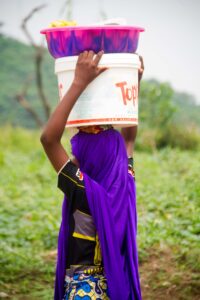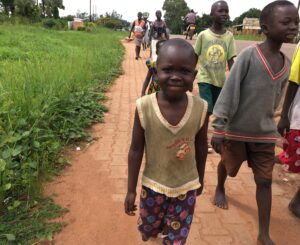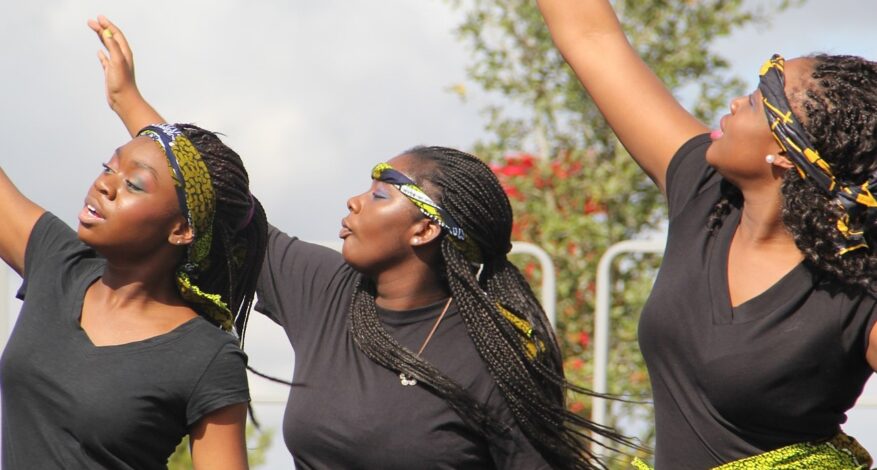EMEKE OBANOR AND THE ART OF REDEMPTION
In 1980, Bob Marley was writing and singing “Won’t you help to sing/ These songs of freedom?/ ‘Cause all I ever have/ Redemption songs/ Redemption songs?”
Forty years later, in the heart of Nigeria, there is a man who has captured the deeper meaning of those words. His name is Emeke Obanor, and his weapon of redemption is not a song; it is a camera. As a social activist and a lawyer, Emeke has ventured into various documentary photography projects to capture the lives and hopes of the Nigerian oppressed.
Heroes
 The project aims to portray girls who have escaped from Boko Haram jailers. Boko Haram, which literally means ‘Western education is forbidden’ in the Hausa language, is a ruthless Sunni jihadist terrorist group operating in north-eastern Nigeria. The group’s objective is to transform Nigeria, a country with 514 ethnic groups, into a caliphate like the Salafist Islamic State. To do so, its militants have been systematically raping women and girls, looting, and destroying schools and villages. It forces abducted women and girls into long radicalization sessions against Western and secular culture. The ultimate aim of these sessions is to deprive women of individual freedom, of the possibility of emancipation and independence.
The project aims to portray girls who have escaped from Boko Haram jailers. Boko Haram, which literally means ‘Western education is forbidden’ in the Hausa language, is a ruthless Sunni jihadist terrorist group operating in north-eastern Nigeria. The group’s objective is to transform Nigeria, a country with 514 ethnic groups, into a caliphate like the Salafist Islamic State. To do so, its militants have been systematically raping women and girls, looting, and destroying schools and villages. It forces abducted women and girls into long radicalization sessions against Western and secular culture. The ultimate aim of these sessions is to deprive women of individual freedom, of the possibility of emancipation and independence.
Some of these women manage to escape the terrorists but, once back in their villages, they receive no psychological help from their families, who categorize them as ‘the women of the militia’ and therefore they regard them with suspicion and reject them.
With his photography, Emeke Obanor has attempted to bring these women back to life, by telling a story of hope. The group of girls portrayed by him has made a strong decision not to give up to discouragement, economic and psychological difficulties. In fact, they want to carry on studying, thus dreaming of a different future. Their faces are hidden for security reasons, as many members of their communities are close to the terrorist group.
Shades of Grey
 This series of photographs tell the stories of emptiness and psychological trauma some Nigerian children have to cope with as they know nothing of their family members who have left to reach Europe. Many of these migrants have never reached the promised land, and it is feared that they died on the journey. With his photographs, Emeke Obanor attempts to express the feeling of uncertainty and loss born by their friends and relatives in such a vulnerable condition.
This series of photographs tell the stories of emptiness and psychological trauma some Nigerian children have to cope with as they know nothing of their family members who have left to reach Europe. Many of these migrants have never reached the promised land, and it is feared that they died on the journey. With his photographs, Emeke Obanor attempts to express the feeling of uncertainty and loss born by their friends and relatives in such a vulnerable condition.
About this project, he said he was inspired by a quote from the documentary photographer Daniel Meadows: “Just because people don’t have a voice, doesn’t mean they don’t have stories.”
With his projects, Emeke has succeeded in bringing to light the atrocities and suffering of his people and has won many awards that have made him one of the most important photographers of the last decade.
All his photographs can be found on his website.

